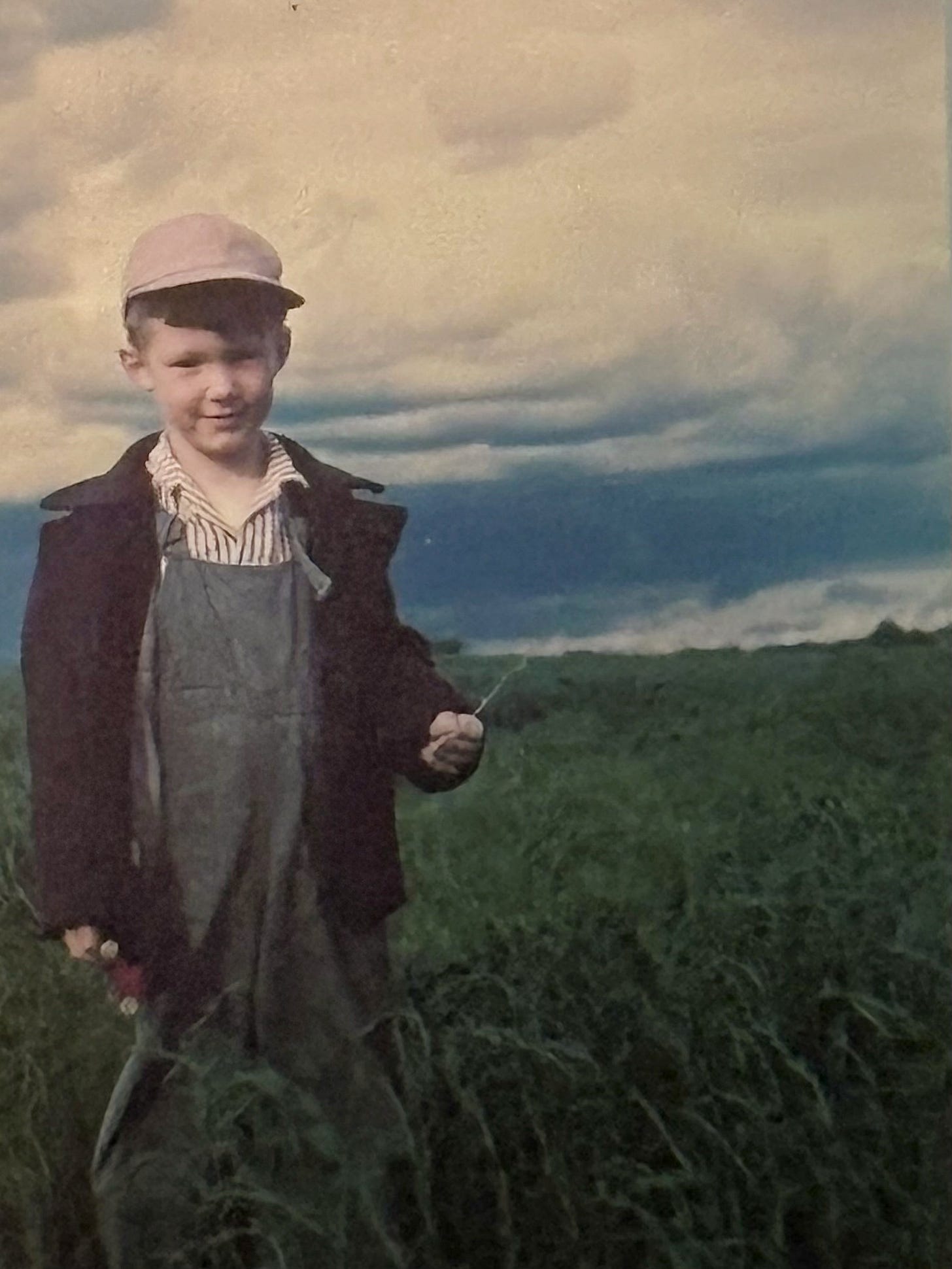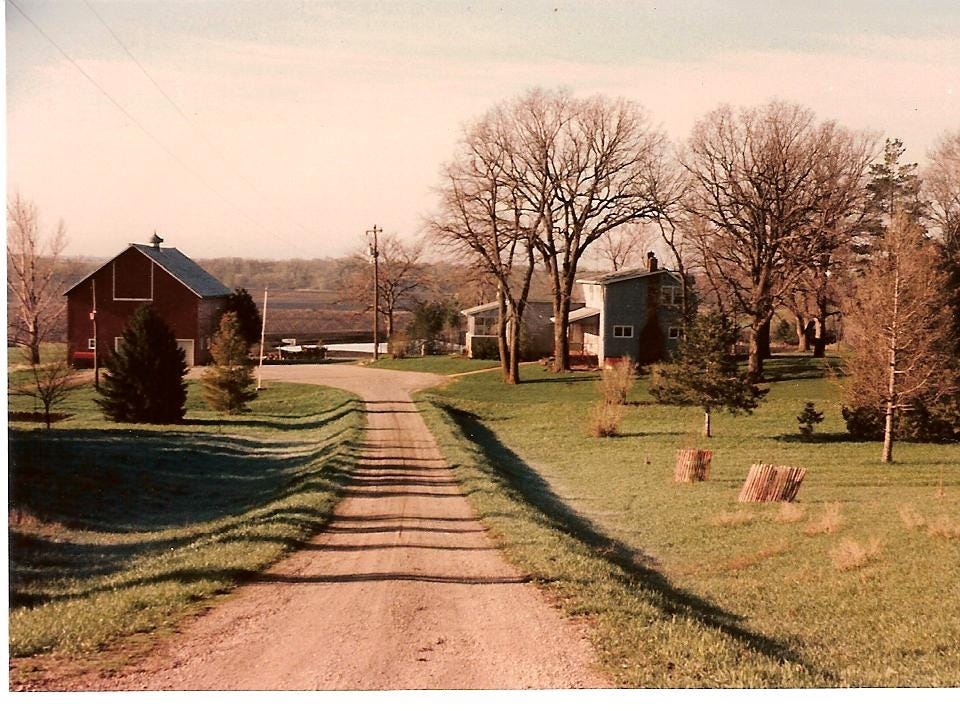I was three years old when my parents pulled up stakes in New Jersey and moved my sister and me to a farm in Minnesota. My city-born parents had no experience with agriculture and the ten-acre hayfield at the summer house in Vermont didn’t count. I learned later that my father started with some idyllic ideas about rural life. Not surprising. He fought World War II by producing bandages at Johnson & Johnson. After four frustrating years, he wanted freedom from the tentacles of urban life. However, his father warned that he would be broke in six months.
My 27-year-old father didn’t listen to him, and the die was cast. Looking back, I realize that a lack of experience isn’t a barrier when you’re in your twenties. Everything is possible. Caution and discretion appear later as the fruit of experience.
My memories of this dramatic change flicker like grainy clips from a kinetoscope. I have faint images of playing among the crates and excelsior in our apartment as my parents packed China and silver, books and furniture, my toys and tricycle.
A much sharper image is driving the Indiana Turnpike. I was sitting in the front seat beside my father, and saw the rear wheel fly off an on-coming car. It bounced across the median and smashed into our car. The errant wheel crumpled the left front fender and smashed the headlight. For the rest of the trip, our car wore a prize fighter’s battered face. We went on to Galena, Illinois, crossed the Mississippi River and traveled another hundred and twenty miles west through a steady rain. The Plymouth slid and slewed for the last ten miles through the ruts and puddles of county road 26. And then we stopped at a mailbox beside the road.
This is my most eidetic memory of early childhood. It remains clear after 78 years and I carry it with me. I am sitting in the car’s back seat and looking out at a world that is empty, wet and gray. Each depression holds water from melted snow and spring rain. In the distance, I see the flooded lowlands along the LeSueur River. The water reflects the pewter sky. Land and sky, trees and water, all of them wear ashen shades ranging from graphite and charcoal to steel and chrome. Below me, I see a gray house at the bottom of a gentle slope. Home.
The moving van had churned the long driveway into a thick mud that said: “Abandon all hope.” Dad pulled on his goulashes and worked his way down and across a field to the house where my uncle was already installing running water, toilets and a furnace—my mother’s three preconditions for moving to the farm.
“What in hell are you doing here?” my uncle asked in surprise. “I didn’t expect you for two days.”
We went to our home by way of a tractor and straw-filled trailer. Our house was a dimly lit space filled with jumble of boxes, crates and barrels, sawdust, bits of boards and tools. The furniture sat akimbo in the corners around the black, pot-bellied stove. After a quick look around, my mother, sister and I stayed with cousins in Janesville until the house was ready.
Dad remained with my uncle and began his farming adventure digging twenty-foot trench six feet deep from the house to the well. After that, he dug a deeper pit for the septic tank. So much for the romantic idyll of rural of rural life! And yet, he had no regrets.
When we moved in, my parents’ bedroom occupied the parlor. It had a large plate glass window with a view that encompassed the fields and woods and marsh that we would transform over the next fifty years. Every morning, they could lie in bed and see their world at their feet.
My parents died in that bed, my mother in 2000 and my father 2014. Both asked to be buried in the woods where they used to camp during the songbird migration. A whitish bolder now marks their resting place near my maternal grandmother, a great aunt and my uncle.
After fifty years of farming, my parents enrolled the farm into a perpetual conservation easement. My father breeched the dykes to reflood the marsh he drained. Then he planted the fields with trees and prairie.
We sold the farm after Dad’s death in 2014. On a crisp October afternoon, my sister and I gave the new owners our keys to the house. As I left, I stopped at the mailbox for a last look through sixty-seven years to that rainy April day of 1947. Though I had no title to the property, I knew in my bones the farm would always be mine.







I can see the fields and the gray bottomlands that you describe. You are. Gifted writer.